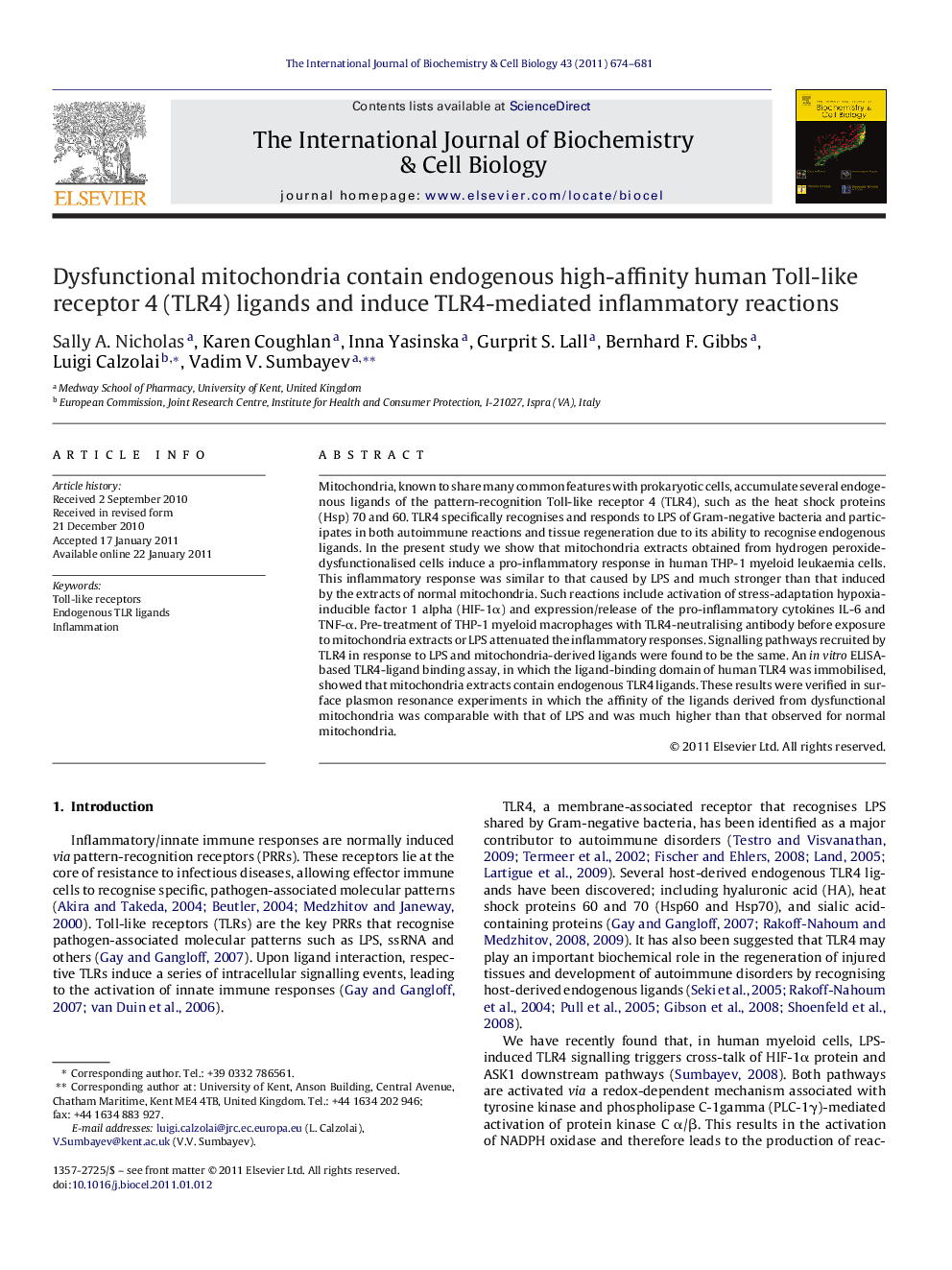| Article ID | Journal | Published Year | Pages | File Type |
|---|---|---|---|---|
| 1984139 | The International Journal of Biochemistry & Cell Biology | 2011 | 8 Pages |
Mitochondria, known to share many common features with prokaryotic cells, accumulate several endogenous ligands of the pattern-recognition Toll-like receptor 4 (TLR4), such as the heat shock proteins (Hsp) 70 and 60. TLR4 specifically recognises and responds to LPS of Gram-negative bacteria and participates in both autoimmune reactions and tissue regeneration due to its ability to recognise endogenous ligands. In the present study we show that mitochondria extracts obtained from hydrogen peroxide-dysfunctionalised cells induce a pro-inflammatory response in human THP-1 myeloid leukaemia cells. This inflammatory response was similar to that caused by LPS and much stronger than that induced by the extracts of normal mitochondria. Such reactions include activation of stress-adaptation hypoxia-inducible factor 1 alpha (HIF-1α) and expression/release of the pro-inflammatory cytokines IL-6 and TNF-α. Pre-treatment of THP-1 myeloid macrophages with TLR4-neutralising antibody before exposure to mitochondria extracts or LPS attenuated the inflammatory responses. Signalling pathways recruited by TLR4 in response to LPS and mitochondria-derived ligands were found to be the same. An in vitro ELISA-based TLR4-ligand binding assay, in which the ligand-binding domain of human TLR4 was immobilised, showed that mitochondria extracts contain endogenous TLR4 ligands. These results were verified in surface plasmon resonance experiments in which the affinity of the ligands derived from dysfunctional mitochondria was comparable with that of LPS and was much higher than that observed for normal mitochondria.
